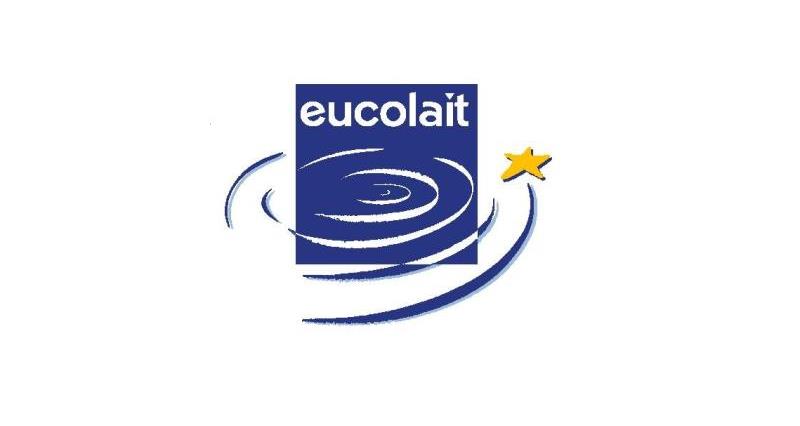Alice O'Donovan, Eucolait Legal & Policy Adviser writes:
As we slowly awake from the winter and the milk starts flowing on farms across Europe, it can only mean one thing - the flush is here. An annual occurrence, the flush is accompanied by a special set of circumstances this year, namely an estimated 350,000 tonnes of skimmed milk powder which has entered into intervention since July 2015.
We find ourselves sitting atop a protein mountain (not for the first time in history, and not on one as high as in the 1970s and 80s as those who lived through the infamous intervention era will surely attest) but concurrently in an unusual situation. The divorce between fat and protein prices means that while the farm gate milk price is currently quite respectable (approximately €0.33/litre) we are about to have SMP enter into intervention again. While butter price quotations have reached a princely €4300/tonne following a short period of downward momentum, skimmed milk powder prices are now basically at intervention level with €1700/tonne - there’s a lot of wiggle room in-between!
Tenders for the sale of powder opened in December 2016 and so far we have seen a total of forty tonnes (20 of which was sold in the UK) make its way out of intervention. With the milk peak in the northern hemisphere approaching and fat and protein prices continuing to diverge, one can conclude that it is only a matter of time before new powder joins the rank of the 350,000 tonnes currently under public ownership in storage facilities across Europe.
Pretending it doesn’t exist just won’t do! So here are the options (as we see them) which are available to the EU authorities for the disposal of this product:
Fund for the European Aid to the Most Deprived (FEAD)
Both the regulation governing the FEAD (Regulation (EU) No 223/2014) and the single Common Market Organisation (sCMO) regulation (Regulation (EU) 1308/2013) allow in principle for the disposal of intervention stocks through FEAD schemes, however this is only possible if the ‘relevant Union legal acts’ provide so. As of yet, observers in Brussels have yet to notice any strong appetite amongst the Member State authorities for such legislation.
This is not very surprising when one takes into account the change in policy direction which lead to the application of the current FEAD regime in 2014 (namely a move away from just providing food aid and an orientation towards providing ‘basic material assistance’ in addition to food, as a means of tackling social exclusion and marginalisation). In short, it is currently uncertain whether legally there will be any moves to allow skimmed milk powder to be channelled into these schemes or whether such an initiative will be taken in time to make inroads into the current intervention stocks. Even if it became possible to dispose of intervention powder via such a programme, the impact on the market would be the same as the SMP would be used as payment for consumer dairy products supplied to the most deprived and would therefore re-enter the market just the same.
Food aid
Another suggestion often heard is food aid to countries in need. It seems however very clear that the Commission does not wish to mix market management with food assistance, excluding using food aid as an outlet for intervention stocks
Feed subsidy scheme
In times gone by, the Commission created a scheme which granted subsidies for the use of SMP as animal feed. This would in effect bridge the gap between SMP and cheaper feedstuffs such as whey or plant based proteins. This aid regime was definitively scrapped with the 2013 reform and there have been to our knowledge no solid discussions at Commission or Member State level to provide for a reprise of this scheme. Nevertheless, it might potentially be an option in the Commission arsenal, especially as the oldest powder in intervention approaches its second birthday soon.
Simply selling it
This is perhaps the hardest sell of all (excusing the awful pun). So far the Commission have not been willing to part with product for less than €2151/tonne (the minimum selling price fixed at the tender on 13 December, the only tender during which product was sold - and this was just a test bid). There has been a notable fall off in the number of operators submitting bids and in the volumes, so much so that the Commission has decided to limit the tender to once a month (i.e. on the third Tuesday of the month).
Article 16 of the sCMO quite explicitly states that sales from intervention must ‘avoid any disturbance of the market’ and must also guarantee ‘equal treatment’ and ‘equal access’ for all operators. Therefore, any attempt to offload the product on a single large buyer or entity would require a remodelling of the current basic legal framework, which would surely not come about quickly enough to remedy the current surplus.
More powder?
In a world where butter prices are flying high, it is to be expected that excess production of the butter by-product SMP will continue to be a reality. The 109,000 tonne ceiling set by the Commission for the buying into intervention of SMP at a fixed price was re-opened on 1 March, meaning that this volume must be accepted without reservation.
If and when this 109,000 tonne limit has been reached, the default obligation of the Commission is to continue buying product in, but by means of a tender (meaning sellers will receive a price lower than the fixed price). We suspect with the protein mountain threatening to reach newer and bolder heights that last years’ experience of increasing the threshold will not be repeated, especially if farm gate milk prices continue to look healthy. So we might see simultaneous buying and selling tenders in the near future. However, all will be confirmed as we head into spring.
